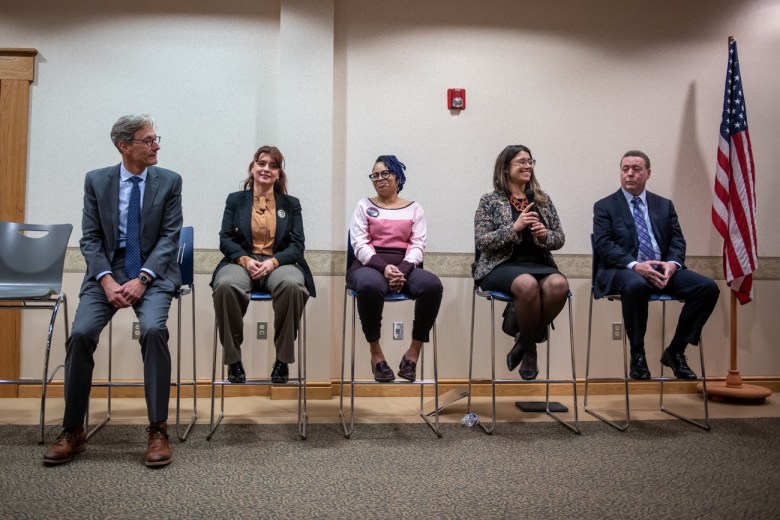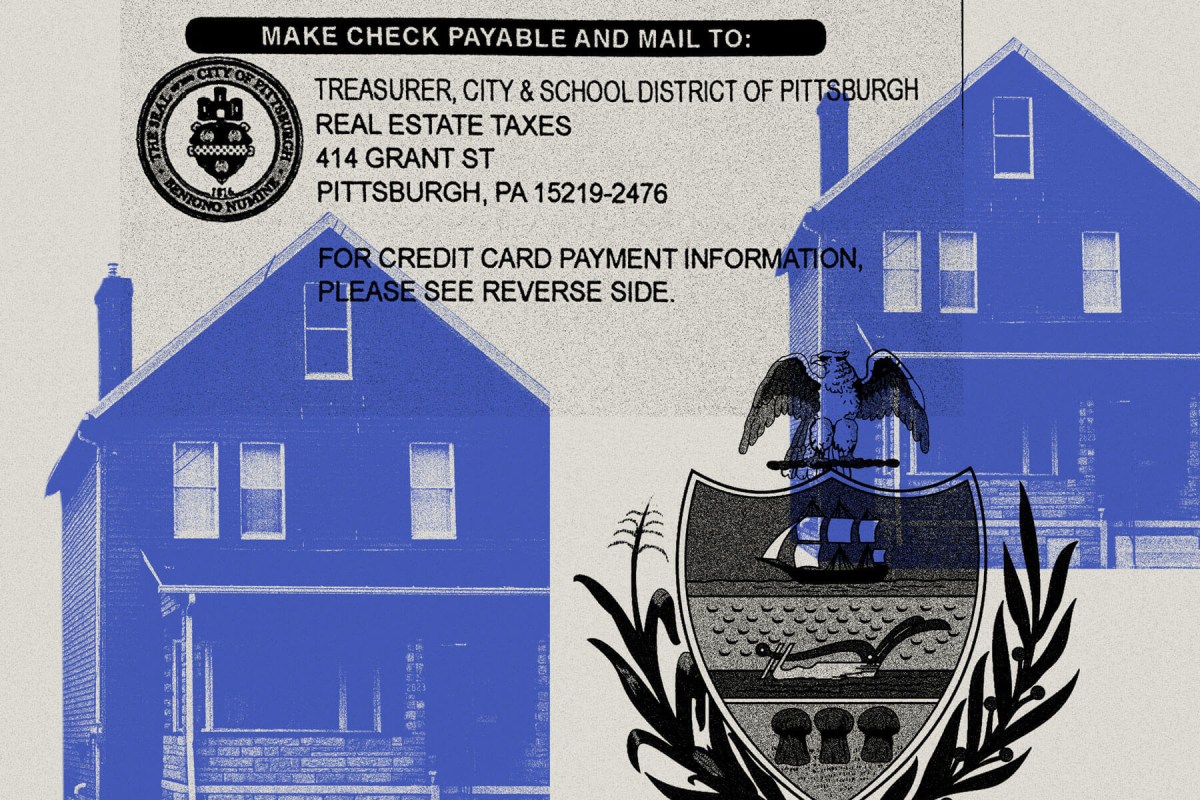The thorny issue of property tax assessments has challenged Allegheny County Executive Rich Fitzgerald at both ends of his 12 years in office, culminating in a 2022 lawsuit that exposed the county for using flawed math to calculate many tax bills.
A new county executive will decide what’s next for an assessment system with damaged credibility. Fitzgerald is term-limited from running for re-election and will leave office in January.
At least eight people are currently running to be the next executive. The winner will have to decide whether or not to do a countywide reassessment, as Fitzgerald vowed not to, and restore public confidence in the fairness of the assessment process after a lawsuit and numerous news reports showed it to be anything but.
Candidates’ plans for the system vary, but all recognize the need for change. Some, like state Rep. Sara Innamorato, said they would like to reassess across the board, a move that could level the playing field but risks raising tax bills on some residents. County Treasurer John Weinstein, on the other hand, favored a more technocratic approach, improving the current appeal system instead of mass reassessment.
“Clearly people are going to be very, very suspect of things coming out of the assessment office, as they should, because none of this is being handled properly,” said Weinstein, who has been treasurer since the late 1990s.
How did we get here?
Most Allegheny County property tax bills are based on the last countywide reassessment of property values, which took place in 2012. But tens of thousands of assessments have been subject to appeals, which can be filed by homeowners, school districts or municipalities who believe the assessment does not reflect current market value.
A calculation known as the Common Level Ratio [CLR] is used to roughly equalize appealed assessments and assessments set by the county over 10 years ago.
“We need an assessment system that is completely insulated from the political process”john weinstein
The average home price in the county has more than doubled since the last full reassessment of properties, but the CLR didn’t change as steeply as property prices did. As a result, some new homeowners are paying much higher property taxes than the long-time homeowners in the same neighborhood, or even next door.
A group of property owners across the county who had been paying the so-called “newcomer tax” filed a lawsuit in 2021. The suit alleged that the county submitted skewed data to the State Tax Equalization Board, which calculates the CLR. The resulting calculation was artificially high and allowed the county, school districts and municipalities to boost their revenues without increasing tax rates, by appealing the assessments of recently sold properties.
A judge ruled that the county “failed to administer the property tax assessment appeal system in a just and impartial manner.” County officials were ordered to send new data to the state board, but the lawsuit is still ongoing. Pittsburgh Public Schools have appealed the new CLR.
To reassess or not to reassess?
Most candidates did not rule out a countywide reassessment, placing the field almost entirely at odds with Fitzgerald’s policy.
For Innamorato, reassessing each property anew is a matter of justice. “By us not taking action and coming up with some sort of regular, consistent system, we’re exacerbating inequality,” she said.
Olivia Bennett, who has heard expert testimony as a county council member during the lawsuit, said the system was “so botched” and “starting from square one would have to be a reassessment.”
Dave Fawcett and Republican Joe Rockey cautioned that the assessment system should be carefully reformed before it is used to reassess the whole county.

“I think there has to be a different approach,” Fawcett said. “And yeah, it could be a countywide reassessment, but not the way we’re doing it now. … If we’re using more objective, more scientific, more data analysis, then we’re using a system with some credibility, and yeah I would be in favor of a uniform, logical, understandable reassessment.”
“The number one thing is to get the backlog of appeals behind us, to understand the implications of that, and for us as a county to get everybody back on an equal footing, which is where they were coming out of 2012,” Rockey said.
Weinstein was the only candidate to come near echoing Fitzgerald in saying no to reassessment. He said by revamping the assessment appeal system, the county can achieve fairness without resetting the entire system.
More cautious approaches
Weinstein proposed ditching the county’s part-time appeals board and replacing it with a full-time, professional board to cut down on backlogs and boost credibility in the process.
“We need an assessment system that is completely insulated from the political process,” Weinstein said.
He also called for greater transparency in the process, with property record cards produced by assessors posted online and an independent review of the data the county sends to the state’s equalization board.
Michael Lamb said it’s too early to decide on a course of action, pending decisions on who is owed a refund as a result of litigation.
Making the assessment system more fair has the potential to bring higher tax bills to some, which makes the whole idea politically tricky.
Though he didn’t detail a plan, Lamb said he would be sure to protect longtime homeowners from “massive” tax increases.
Innamorato said she favors a Philadelphia program, that offers property tax relief to longtime homeowners. That program caps assessment increases and “freezes” assessments for homeowners whose income is below a certain threshold and who have lived in the home for 10 years.
Charlie Wolfson is PublicSource’s local government reporter and a Report for America corps member. He can be reached at charlie@publicsource.org or on Twitter @chwolfson.
Julia Zenkevich is a general assignment reporter for 90.5 WESA.
This story was fact-checked by Terryaun Bell.
This package was produced in a partnership between WESA and PublicSource.






